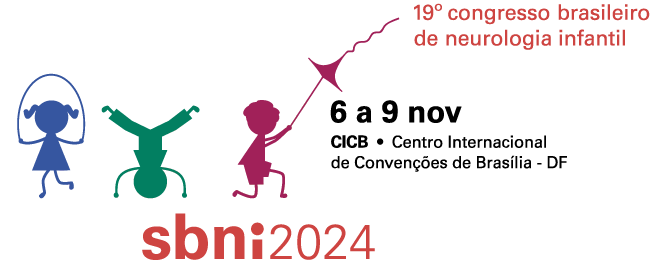Dados do Trabalho
Título
EPIDEMIOLOGICAL PROFILE OF DYSLEXIA IN CHILDHOOD IN BRAZIL (2015-2023).
Introdução
Dyslexia is a specific learning disorder characterized primarily by significant difficulties in reading, which cannot be attributed to sensory or intellectual deficits. In Brazil, the prevalence of dyslexia has become an increasing concern, reflecting challenges in early diagnosis and effective treatment. Recent research indicates that dyslexia affects a substantial portion of the child population, deeply impacting academic performance and the psychosocial well-being of these children. This study aims to provide a comprehensive overview of the prevalence of dyslexia in childhood in Brazil, addressing the current situation and exploring the implications of this disorder in children's lives.
Objetivo
To describe and analyze the prevalence of dyslexia in the Brazilian child population between 2015 and 2023, as well as to investigate the impact of this disorder on academic performance and social relationships of children.
Método
This descriptive epidemiological study, of a quantitative nature, was conducted through a literature review in databases from the Brazilian Dyslexia Association, SciELO, Google Scholar, and the Ministry of Health. Data on patients diagnosed with dyslexia in Brazil between January 2015 and December 2023 were included.
Resultados
The prevalence of dyslexia in Brazil during the period from 2015 to 2023 was estimated to be between 5% and 11% of the school population. Children with dyslexia face various difficulties, including academic, emotional, and social challenges, which negatively affect their school performance and self-esteem. Existing public policies have shown limited effectiveness, especially in rural areas where resource scarcity and lack of adequate educator training are more pronounced.
Conclusão
Dyslexia is a significant disorder affecting a substantial portion of Brazilian children, with serious implications for their academic performance and psychosocial well-being. The prevalence and impact of the disorder vary according to access to diagnostic and support services, highlighting the urgent need to improve early identification and intervention strategies. Public policies and educational practices should be reviewed and adapted to address overlay these challenges, ensuring adequate support for children with dyslexia and promoting their full development.
Referências
SILVA, Raquel Gonçalves da. A política de acesso e permanência de crianças e adolescentes com
deficiência nas escolas públicas de Miracema do Tocantins: uma análise documental. 2024.
DE ANDRADE, Ênio Roberto. Transtorno de Déficit de Atenção e Hiperatividade e Transtorno de
Aprendizagem. Perspectivas em Transtornos do Desenvolvimento, p. 172, 2023.
PEDROZA, Marina Melo. Dislexia, leitura e escrita: uma revisão dos artigos publicados no Brasil
entre os anos de 2015 e 2020. 2021.
LARANJEIRA, Cláudia Areias Miranda. Dislexia em Crianças e Adolescentes-Perspetiva Atual.
2016. Dissertação de Mestrado. Universidade do Porto (Portugal).
MASSI, G. A dislexia em questão. São Paulo: Plexus, 2007.
MOYSÉS, M.A.; COLLARES, C.A.L. Dislexia e TDAH: uma análise a partir da ciência médica. In: Conselho Regional de Psicologia de São Paulo.Medicalização de crianças e adolescentes: conflitos silenciados pela redução de questões sociais a doença de indivíduos., São Paulo: Casa do Psicólogo p.71-110., 2011
SIGNOR, R.; SANTANA, A.P. Transtorno de Déficit de Atenção/Hiperatividade: implicações para a linguagem escrita. In: MOURA, H, MOTA, M.B., SANTANA, A.P. (Orgs.). Cognição, Léxico e Gramática. Florianópolis: Insular, p. 175-20, 2012.
SIGNOR, R. Transtorno de Déficit de Atenção/Hiperatividade: uma análise histórica e social. Rev. Bras. Linguist Apl, v. 13, n.4, p. 1145-116, dez 2013 b.
Palavras Chave
Dyslexia; Children; learning disorder
Área
Transtornos neuropsiquiátricos e distúrbios de aprendizagem
Autores
YASMIN GONDIM DE PAIVA FARIA, HANNE KAROLINE LOPES OLIVEIRA, GABRIELLE CARVALHO HENDGES, ELLEN CAROLINE SILVA PRADO, GUSTAVO CARDOSO COSTA, ANA CAROLINE FERREIRA RODRIGUES, HELOISA CARDOSO GOMES
